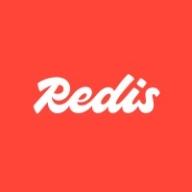

Find out in this report how the two Streaming Analytics solutions compare in terms of features, pricing, service and support, easy of deployment, and ROI.
With Microsoft, expectations are higher because we pay for a license and have a contract.
There is plenty of community support available online.
The Apache community provides support for the open-source version.
Customers have not faced issues with user growth or data streaming needs.
I need to enable my solution with high availability and scalability.
Data migration and changes to application-side configurations are challenging due to the lack of automatic migration tools in a non-clustered legacy system.
Apache Kafka is stable.
This feature of Apache Kafka has helped enhance our system stability when handling high volume data.
Apache Kafka is a mature product and can handle a massive amount of data in real time for data consumption.
Redis is fairly stable.
The performance angle is critical, and while it works in milliseconds, the goal is to move towards microseconds.
We are always trying to find the best configs, which is a challenge.
Scaling up continues to be a challenge, though it is much easier now than it was in the beginning.
Data persistence and recovery face issues with compatibility across major versions, making upgrades possible but downgrades not active.
The open-source version of Apache Kafka results in minimal costs, mainly linked to accessing documentation and limited support.
Its pricing is reasonable.
Since we use an open-source version of Redis, we do not experience any setup costs or licensing expenses.
Apache Kafka is particularly valuable for managing high levels of transactions.
Apache Kafka is effective when dealing with large volumes of data flowing at high speeds, requiring real-time processing.
It allows the use of data in motion, allowing data to propagate from one source to another while it is in motion.
It functions similarly to a foundational building block in a larger system, enabling native integration and high functionality in core data processes.
| Product | Market Share (%) |
|---|---|
| Apache Kafka | 4.0% |
| Apache Flink | 11.3% |
| Databricks | 9.5% |
| Other | 75.2% |
| Product | Market Share (%) |
|---|---|
| Redis | 22.6% |
| Amazon ElastiCache | 18.1% |
| Google Cloud Memorystore | 14.1% |
| Other | 45.199999999999996% |

| Company Size | Count |
|---|---|
| Small Business | 32 |
| Midsize Enterprise | 18 |
| Large Enterprise | 49 |
| Company Size | Count |
|---|---|
| Small Business | 11 |
| Midsize Enterprise | 3 |
| Large Enterprise | 9 |
Apache Kafka is an open-source distributed streaming platform that serves as a central hub for handling real-time data streams. It allows efficient publishing, subscribing, and processing of data from various sources like applications, servers, and sensors.
Kafka's core benefits include high scalability for big data pipelines, fault tolerance ensuring continuous operation despite node failures, low latency for real-time applications, and decoupling of data producers from consumers.
Key features include topics for organizing data streams, producers for publishing data, consumers for subscribing to data, brokers for managing clusters, and connectors for easy integration with various data sources.
Large organizations use Kafka for real-time analytics, log aggregation, fraud detection, IoT data processing, and facilitating communication between microservices.
Redis offers high-speed, in-memory storage, renowned for real-time performance. It supports quick data retrieval and is used commonly in applications like analytics and gaming.
Renowned for real-time performance, Redis delivers high-speed in-memory storage, making it a favorite for applications needing quick data retrieval. Its diverse data structures and caching capabilities support a broad array of use cases, including analytics and gaming. Redis ensures robust scalability with master-slave replication and clustering, while its publish/subscribe pattern renders it reliable for event-driven applications. The solution integrates smoothly with existing systems, minimizing performance tuning needs. Although documentation on scalability and security could be improved, Redis remains cost-effective and stable, commonly utilized in cloud environments. Enhancing integration with cloud services like AWS and Google Cloud and refining GUI may improve usability.
What are the key features of Redis?Redis finds application across industries for tasks like caching to improve application performance and speed, minimizing database load. It enables real-time processing for session storage, push notifications, and analytics. As a messaging platform, Redis handles high traffic and supports replication and clustering for cross-platform scalability.
We monitor all Streaming Analytics reviews to prevent fraudulent reviews and keep review quality high. We do not post reviews by company employees or direct competitors. We validate each review for authenticity via cross-reference with LinkedIn, and personal follow-up with the reviewer when necessary.